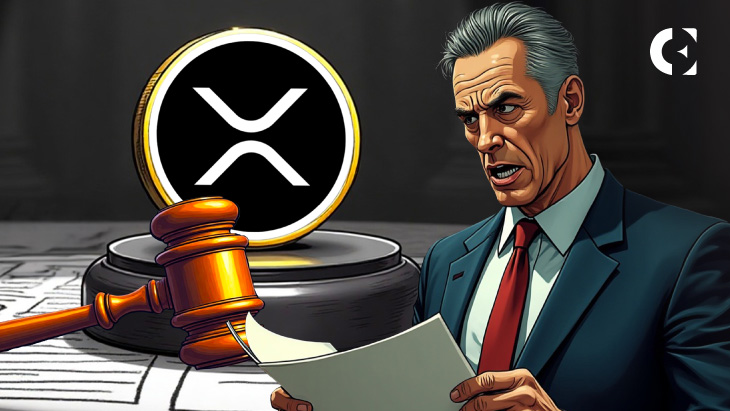- Lawyer Bill Morgan calls arguments that XRP lacks legal clarity “illogical nonsense.”
- He states XRP’s clarity isn’t solely dependent on a court classifying it as a commodity.
- Morgan argues government legislative failure, not courts, fuels crypto classification debates.
Renowned crypto lawyer Bill Morgan has faulted the argument by a section of the crypto community claiming that XRP lacks legal clarity because no court has officially classified it as a specific type of asset.
Morgan chastised such an argument through his latest post on X, simply “illogical nonsense.”
Morgan: “Commodity” Label Not Sole Path to Legal Clarity
According to Morgan, XRP critics, especially Bitcoin maximalists, say the court has classified BTC as a commodity, while XRP has no such classification. They use that logic to claim the latter lacks legal clarity.
Morgan disagrees with such logic despite its popularity. The lawyer noted that there is no universal definition of clarification within the context of the argument. According to Morgan, classification could come from legislation or a court decision. The crypto lawyer mentioned that an Australian court recently classified Bitcoin as property despite its previous classification as a commodity.
Focus on Judge Torres’s Actual Ruling: Investment Contracts, Not Classification
The legal expert further explained that because Judge Torres did not find that XRP is a commodity does not mean the cryptocurrency lacks legal clarity.
Related: Ripple’s Legal Chief Raises Constitutional Alarm Over SEC’s Latest XRP Classification
He noted that most countries do not focus on the contrast between commodity and security the way US authorities, especially the SEC, do. According to Morgan, the SEC’s approach towards crypto pushed most projects into pursuing regulation and seeking classification.
Governments’ Legislative Failure Fuels Classification Debate, Says Morgan
In the meantime, the renowned crypto lawyer noted that the classification debate arose because of the government’s lack of diligence in providing legislative direction for the crypto industry.
Morgan cited the U.S. and Australian governments as prime examples of states that have failed to pass comprehensive legislation that clearly classifies various crypto assets. As a result, he argues, these issues are often pushed into the courts as parties seek direction that lawmakers haven’t provided.
Courts Shouldn’t Fill Legislative Gaps in Crypto, Argues Legal Expert
According to Morgan, it is not the courts’ fundamental responsibility to fill the gap when legislative bodies fail to do their job.
Related: SEC vs Ripple Latest: What Recent Twists Mean for XRP’s Future Clarity
He believes the role of the courts is to deal with and make factual findings or legal holdings that address the specific issues and disputes brought before them. The crypto lawyer explained that the issue before Judge Torres was to decide whether Ripple’s sales of XRP were investment contracts, not whether it was a commodity.
Disclaimer: The information presented in this article is for informational and educational purposes only. The article does not constitute financial advice or advice of any kind. Coin Edition is not responsible for any losses incurred as a result of the utilization of content, products, or services mentioned. Readers are advised to exercise caution before taking any action related to the company.







